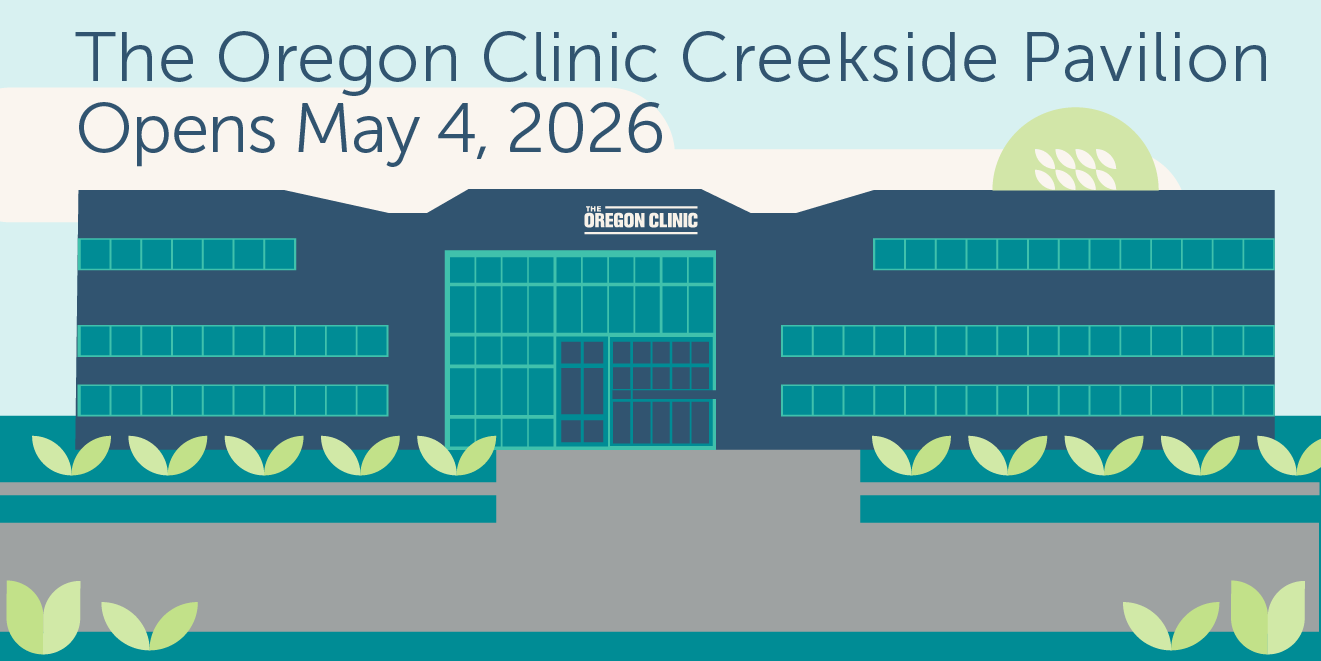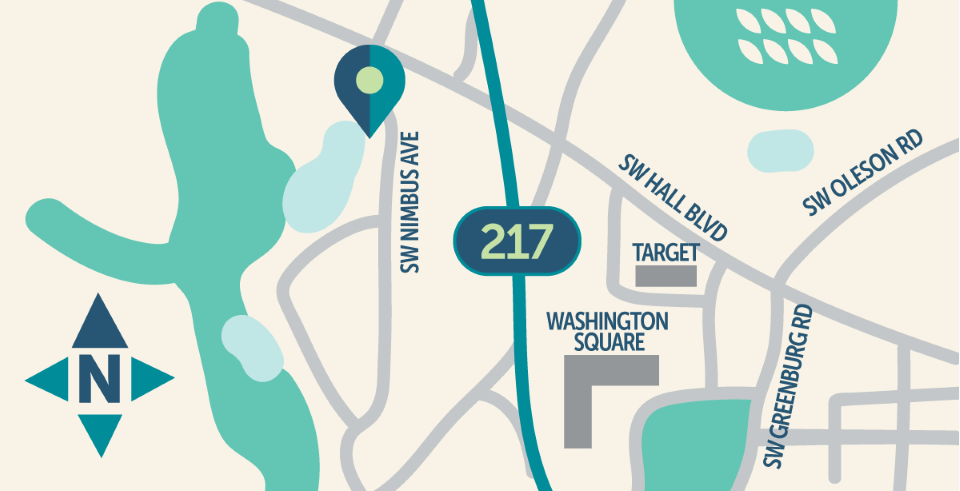
We have exciting news! The Oregon Clinic is opening our newest location—Creekside Pavilion— located in the Nimbus business park in Beaverton.
Four Oregon Clinic specialty offices are moving to Creekside Pavilion on May 4, 2026: Cardiology, Pulmonary, Critical Care & Sleep Medicine West, Center for Advanced Surgery – West, Westside Surgical Specialists West. The Oregon Clinic Orthopedics will also open a second office in the Pavilion.
The Oregon Clinic Creekside Pavilion offers:
- Modern amenities and ample free parking
- Multiple clinics under one roof for accessible care
- Convenient location near Highway 217 and the Hall/Nimbus WES TriMet Station
Address: 11000 SW Stratus Street, Beaverton, OR 97008

Clinics Moving
- Suite: 300A
- Phone: 503-692-0405
- Hours: M-F: 8:00am – 5:00pm
- Last Day at Current Location for In-person Appointments: April 28, 2026
Center for Advanced Surgery – West
- Suite: 200A
- Phone: 503-281-0561
- Hours: M-F: 8:30am – 4:30pm
- Last Day at Current Location for In-person Appointments: April 28, 2026
Orthopedics – New Second Location!
- Suite: 200B
- Phone: 503-238-1061
- Hours: M-F: 8:30am – 4:30pm
Pulmonary, Critical Care & Sleep Medicine West
- Suite: 300B
- Phone: 503-297-3778
- Hours: M-F: 7:30am- 5:00pm
- Last Day at Current Location for In-person Appointments: April 17, 2026
- Suite: 200C
- Phone: 503-297-1351
- Hours: M-F: 8:00am – 4:30pm
- Last Day at Current Location for In-person Appointments: April 29, 2026
If you have an upcoming visit scheduled with one of the clinics listed above, please confirm your appointment location in MyChart.
You can also contact your clinic by calling the phone number above or by sending a MyChart message.
Our clinic care teams look forward to providing you with the same excellent specialty care in a fabulous new location at The Oregon Clinic Creekside Pavilion!